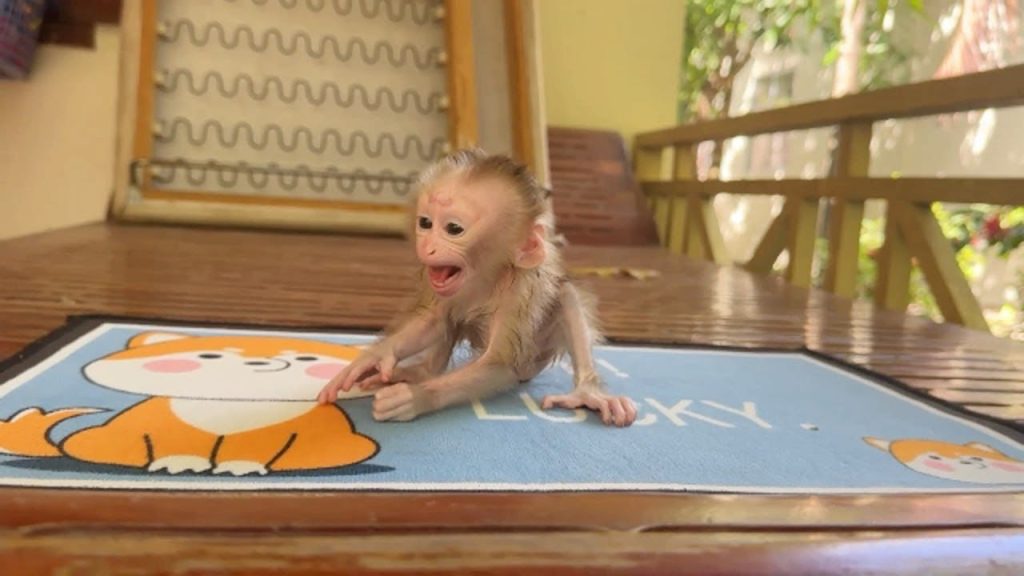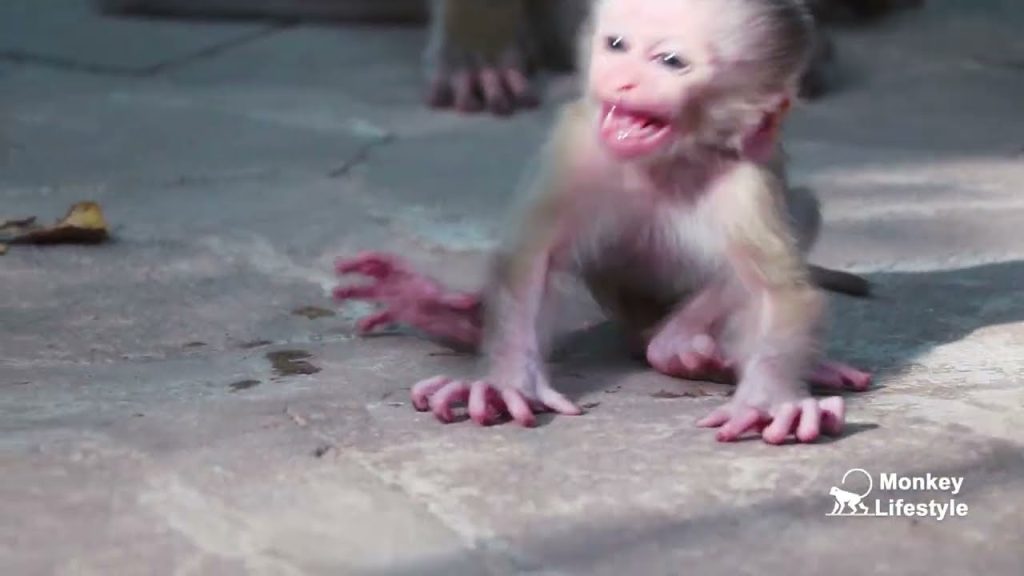In the quiet corner of the nursery, a soft chorus of tiny cries echoed through the room. Three very small newborn baby monkeys lay wrapped in thin cloths, their eyes barely open and their little bodies trembling with hunger.
Their soft whimpers turned into louder squeaks as they stretched their arms into the air—searching, pleading for milk. Their tiny bellies rumbled, and their mouths opened wide, instinctively rooting for comfort.
A caregiver rushed over, holding warm milk in a bottle and a small syringe. The second the scent of milk reached them, the babies began wriggling with excitement. One baby monkey, smaller than the rest, let out the loudest cry, shaking from both cold and hunger.
With gentle hands, the caregiver placed a soft nipple to the tiniest one’s lips. Instantly, the crying stopped. The baby sucked hungrily, eyes closed in relief, drinking as fast as his tiny mouth would allow. Milk dribbled down his chin, but he didn’t stop—he was starving.
One by one, each baby was fed. Their cries grew quieter, replaced by soft gulping sounds and the rhythmic rise and fall of their little chests. As they filled their tummies, the babies began to relax. Tiny hands unclenched, tails curled softly, and their fur settled with warmth.
Once all were fed, they snuggled close together, sharing body heat and comfort. The room, once filled with desperate cries, was now peaceful and still—a moment of safety after fear.
These newborns may have entered the world with hardship, but in that warm, quiet room, their journey toward healing had begun—with full bellies, gentle care, and the promise of love.


